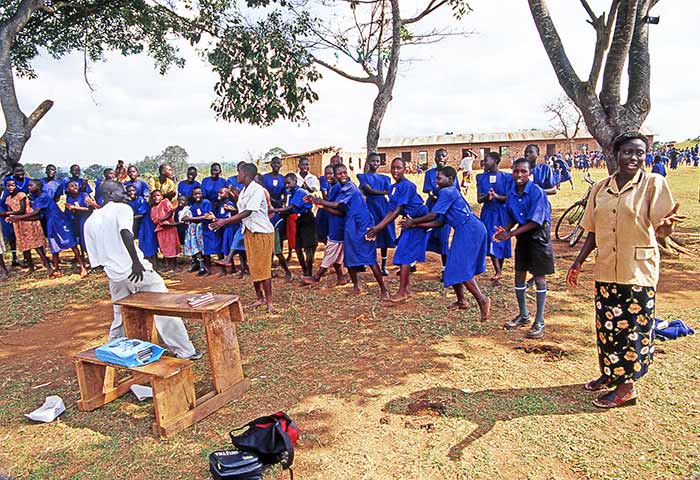A study by Uganda’s Economic Policy Research Centre found that students studying in Promoting Equality in African Schools (PEAS), a social enterprise that operates 28 secondary schools across the country, are achieving higher marks in national English and maths test than students in other, more expensive government and private schools.
PEAS runs schools as part of a PPP with the Ugandan government under the Universal Secondary Education programme, which is aimed at increasing enrolment throughout the country.
In 2013, secondary school enrolment in Uganda stood at just 28%. The government has stated it is not able to deliver the needed places without partnerships with the private sector.
Francis Mwesigye, a researcher at the EPRC, praised the strong child protection practices in PEAS schools and the good community engagement they have supported, indicated by well-functioning parents-teachers associations. More participatory classroom practices are also a factor behind the good performance of PEAS schools, he said.
“What we can see from the findings are signs that PPPs can achieve their aims of expanding access to quality secondary schooling.”
However across Uganda, as well as in other African nations including Kenya and Liberia, PPPs in education are proving controversial.
Angella Nabwowe, programmes manager at the Initiative for Social and Economic Rights in Uganda, has challenged the use of PPPs in education. She told Public Finance International that education should be the responsibility of the state.
Nabwowe said PPP schools in Uganda lack qualified teachers, laboratory facilities, special needs facilities and effective teaching and supervision. Many are for profit, and have proved problematic in terms of accountability, monitoring and supervision, she added.
She continued: “I know of a PEAS school in Bulobaba. This school is not any different from many of the PPP schools in the country. The quality of education is wanting and the general infrastructure is not up to standard.”
She noted that the school had examination results withheld last year due to suspected malpractice, along with more than 40 other non-PEAS schools throughout Uganda. Mike Niles, a PEAS spokesman, confirmed this.
He continued to say that the school in question is performing well above the national average, with 98% of students passing their exams compared to 91% nationally. Of those, 81% in the PEAS school achieved top grades in comparison to the national rate of 51%.
Niles said PEAS operates a zero tolerance policy on malpractice and has implemented a number of preventative measures to limit its occurrence. PEAS also conduct more teaching audits, inspections and observations in each year than government or private education providers in Uganda, he said.
Earlier this year, plans to roll out education PPPs in Liberia, attracted the criticism of the United Nations special rapporteur for education, Kinshore Singh. He slammed the plans, calling them a “gross violation” of the state’s obligation to deliver education.
Singh also criticised the fact that governments are handing over public cash to pay private providers instead of using the money to deliver the service themselves.














